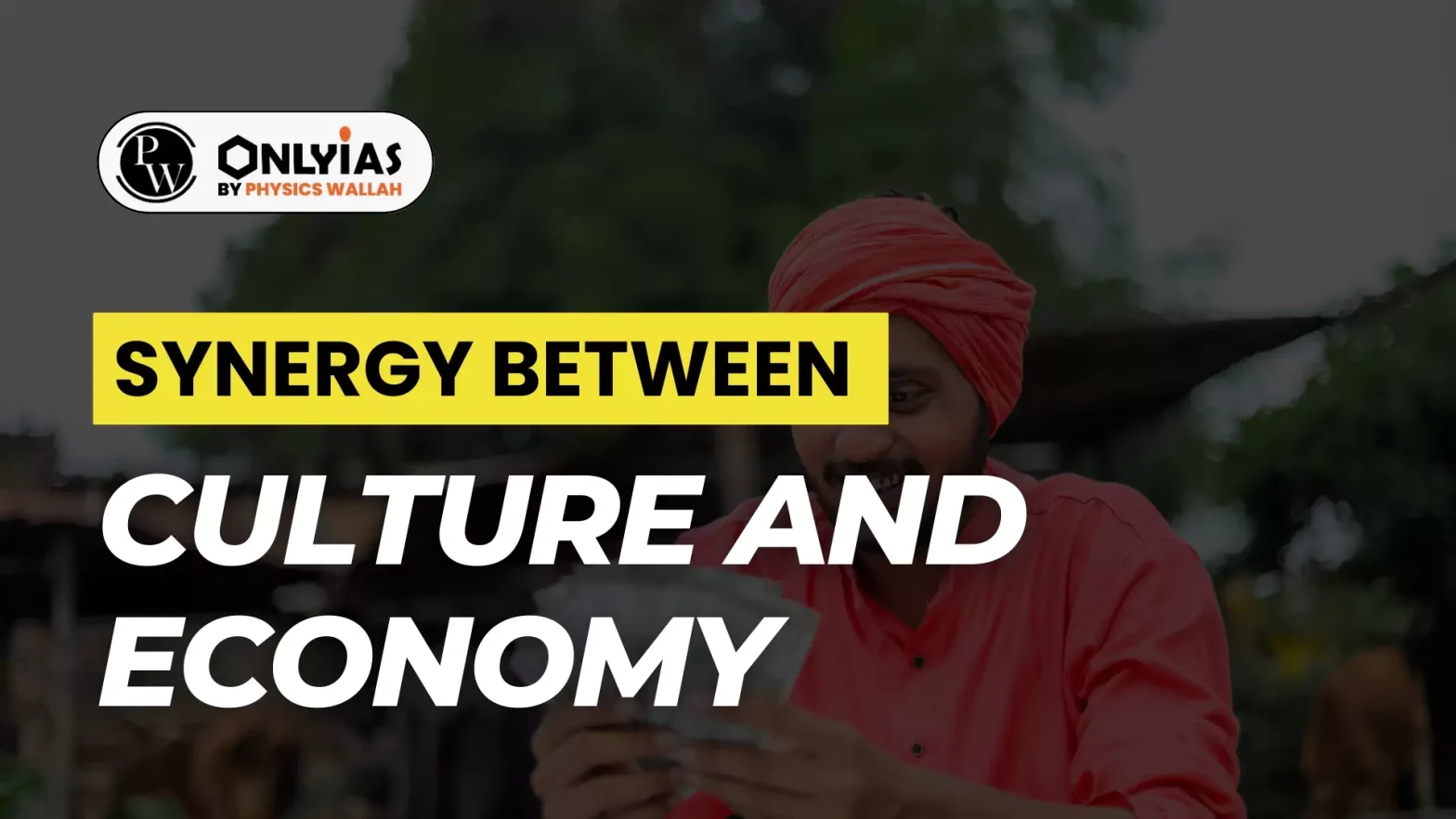Culture and economy are deeply intertwined, each influencing and enhancing the other. This can lead to sustainable economic progress.
| Relevancy for Prelims: Maitri Cultural Economy Summit 2024, Kumbh Mela, etc.
Relevancy for Mains: Interrelationship between culture and economy, etc. |
Synergy between Culture and Economy
- This synergy can be observed through various lenses, from local community impacts to global economic trends.
- Cultural assets such as traditions, arts, and heritage sites can drive economic growth.
- Cities with rich cultural histories often attract tourism, which stimulates local businesses and generates revenue.
- For example, the cultural heritage of cities like Paris and Rome makes them top tourist destinations, contributing significantly to their economies.
Enroll now for UPSC Online Course
Brace for stronger inflation and possibly weaker central banks
- The creative sector, including music, film, fashion, and design, is a major economic driver.
- These industries not only create jobs and generate income but also foster innovation and attract investments.
- The global success of Hollywood and the fashion industry in Milan and New York are prime examples of how culture fuels economic activity.
- Governments often implement cultural policies to boost economic development.
- By investing in cultural infrastructure such as museums, theatres, and festivals, they create vibrant communities that attract residents, businesses, and tourists.
- These investments can lead to urban regeneration and increased property values.
- A culturally diverse workforce brings various perspectives and skills, fostering creativity and problem-solving.
- This diversity can enhance a company’s ability to innovate and adapt to changing markets, making economies more resilient to shocks.
- Cultural education enhances human capital by fostering critical thinking, creativity, and communication skills.
- These qualities are essential in the modern economy, where knowledge and innovation are key drivers of success.
- Investing in cultural education can thus contribute to a more skilled and adaptable workforce.
- Maitreya Dadashri, the force behind the summit also shared this vision, “The synergy between culture and economy forms the foundation of sustainable development.
- We envision a future where spiritual and economic prosperity evolve hand in hand,” he said.
- Countries and cities often use culture to brand themselves and build soft power.
- Cultural diplomacy, through international cultural events, exchanges, and collaborations, can enhance a nation’s global image and influence, attracting foreign investment and tourism.
- Law and Justice Minister Arjun Ram Meghwal echoed this sentiment at the Maitri Cultural Economy Summit 2024.
- “The Modi government has been dedicated to nurturing culture to harness its economic potential,” he said.
- He emphasised that India’s cultural economy is deeply rooted in the ancient wisdom of the Vedas and Puranas, making it an intrinsic part of the nation’s identity.
- Cultural tourism in cities like Ayodhya, Varanasi, and Puri, along with major events such as the Kumbh Mela, play a significant role in contributing to the GDP.
- In conclusion, the synergy between culture and economy is a powerful combo that drives both societal and economic progress.
- By recognizing and fostering this relationship, policymakers, businesses, and communities can harness cultural assets to achieve sustainable economic growth and development.
- This was aptly summed up by Union Minister Nitin Gadkari when he said that importance of cultural economic governance must be the cornerstone of our policies.
- Globalisation has increased cultural exchange, leading to the spread of ideas, goods, and services across borders.
- This cultural exchange can open new markets for businesses and create opportunities for economic partnerships.
- For instance, the global popularity of K-pop and Japanese anime has created vast economic opportunities for South Korea and Japan.
Check Out UPSC Modules From PW Store
Conclusion
The synergy between culture and economy fosters sustainable growth, innovation, and resilience, driving societal and economic progress through cultural assets and diverse, skilled workforces.
![]() 16 Jul 2024
16 Jul 2024
